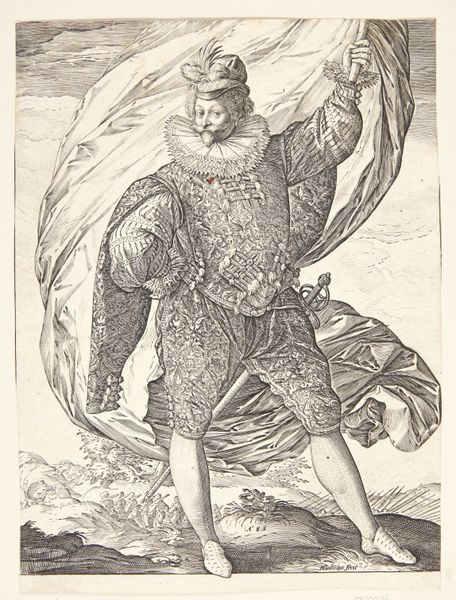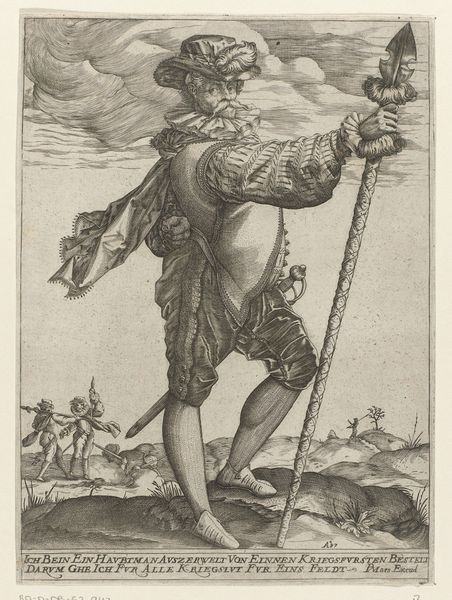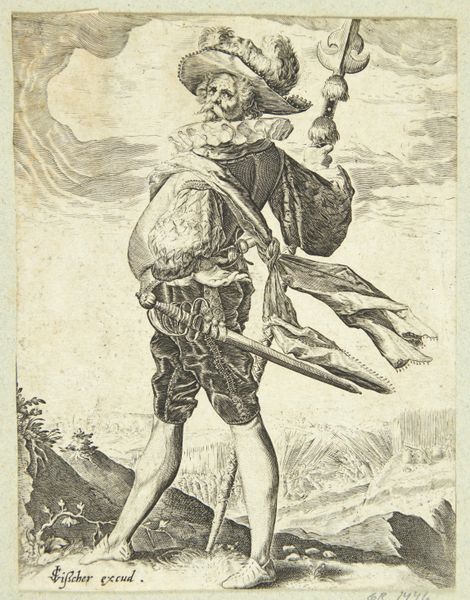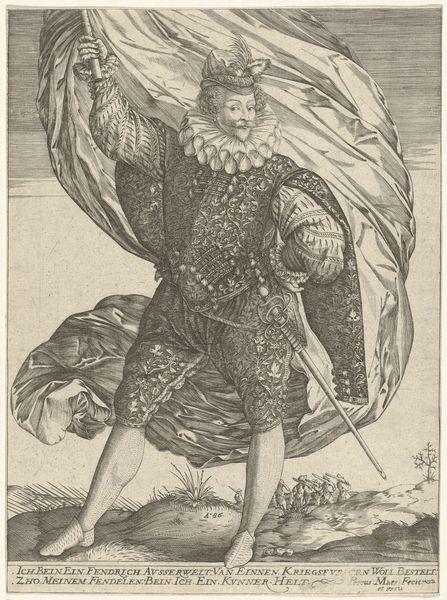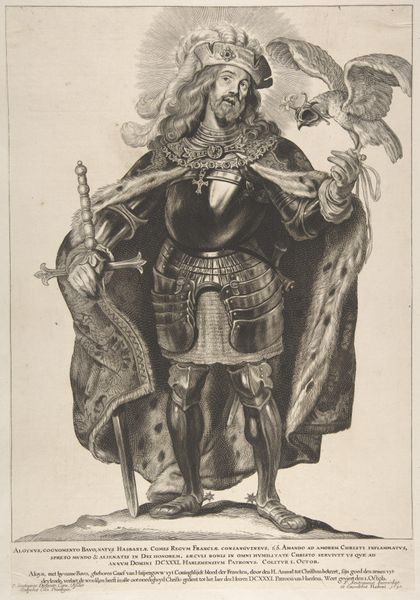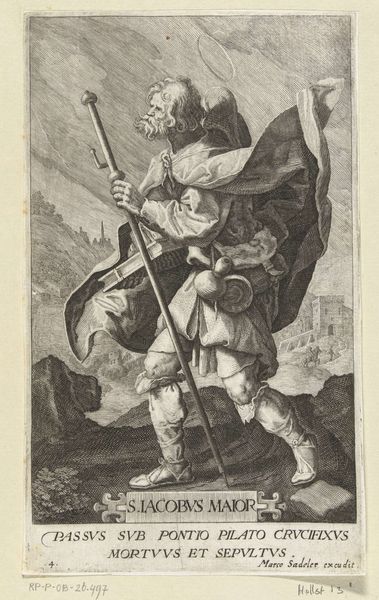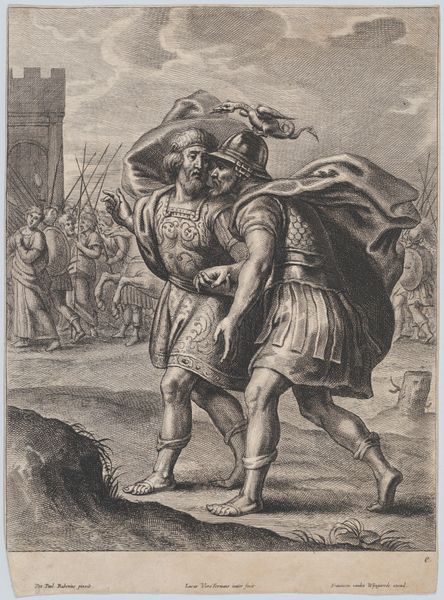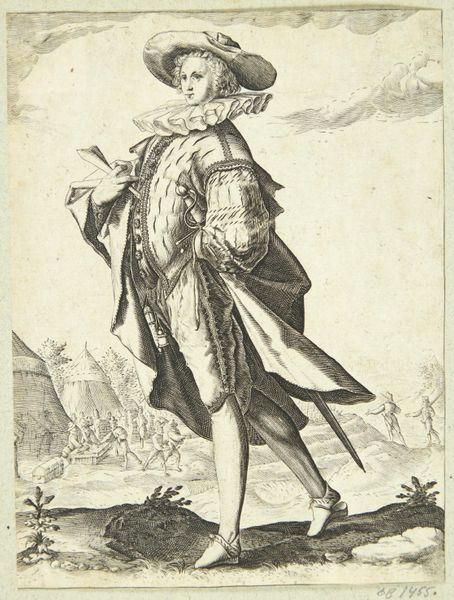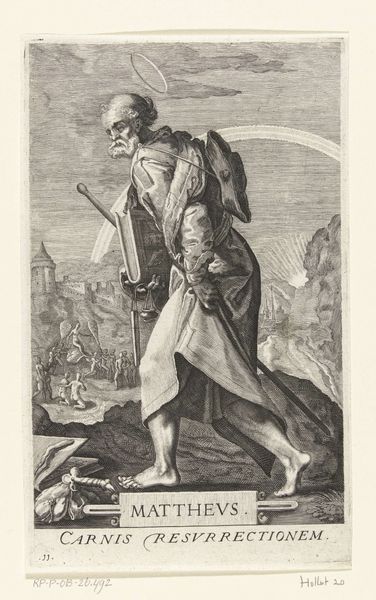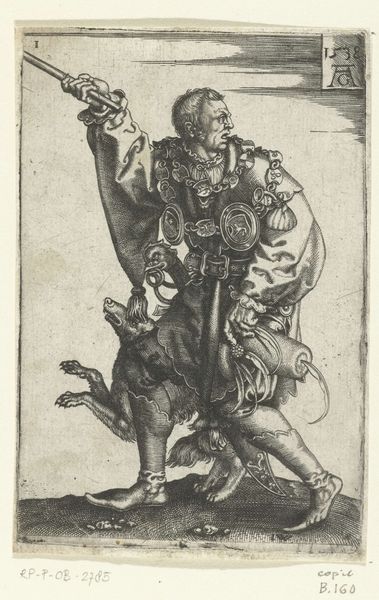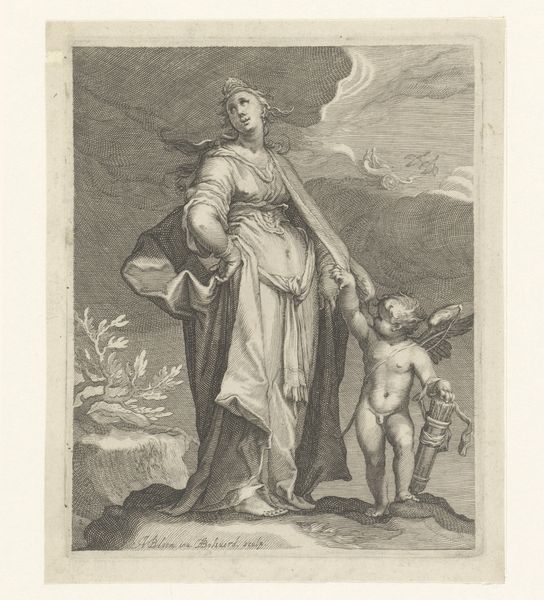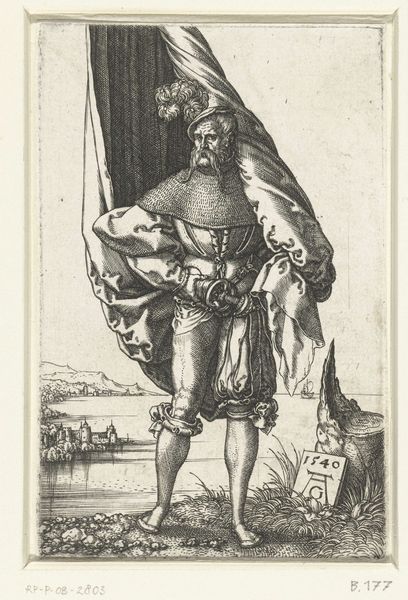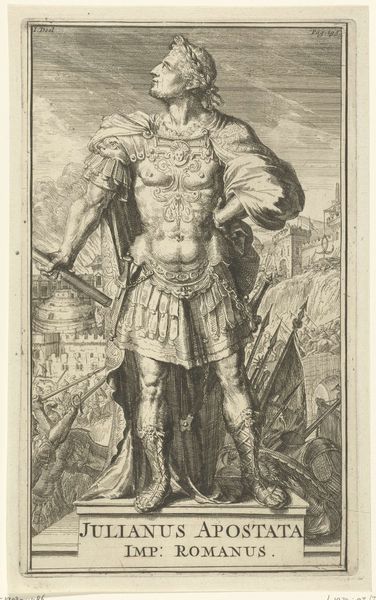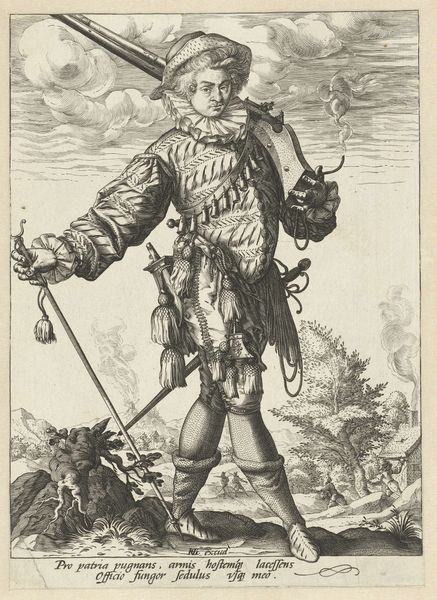
engraving
#
portrait
#
pen sketch
#
mannerism
#
figuration
#
history-painting
#
engraving
Dimensions: height 215 mm, width 157 mm
Copyright: Rijks Museum: Open Domain
Hendrick Goltzius made this engraving, Vaandrig, in the late 16th century. Intaglio printmaking is not often considered a ‘material’ practice, but it certainly is. The copperplate itself is the primary ingredient, which is painstakingly incised with lines that hold ink. Look closely and you'll notice the burin work is virtuosic, especially in the figure’s elaborately patterned clothing. Note how the varying depth and density of lines create a convincing illusion of volume and texture. Goltzius was a master of this. Consider the social context. This level of detail suggests a patron with means. Engravings like this were luxury goods. They circulated images and ideas in a pre-photographic age, contributing to the emerging visual culture of early modern Europe. They also relied on the skilled labor of the engraver, whose hand translated image to reproducible form. Next time you look at a print, think not just of the image, but of the processes and materials that brought it into being. This connects it to a much wider world of labor, politics, and consumption.
Comments
No comments
Be the first to comment and join the conversation on the ultimate creative platform.
